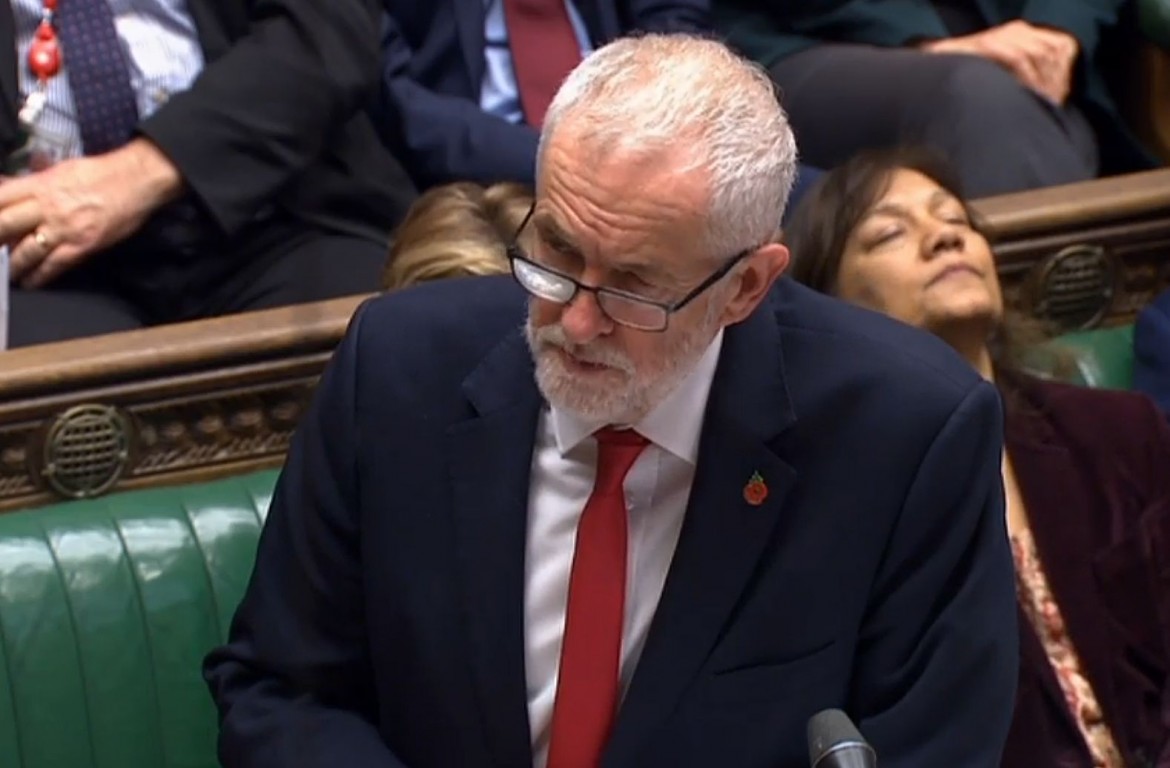Analysis
With Britain headed to vote, another hung parliament is not out of the question
Between all the referendums and elections, on average the United Kingdom has gone to the polls once a year since 2014, starting with the Scottish referendum.

There will be snap elections in the UK, set to take place on Dec. 12, after a measure approved by Parliament by 438 votes to 20. The opposition would have preferred the date of Dec. 9, to give the government less time before the dissolution of the current legislature (which is required by law to take place 25 days before the election date), so as to reduce the risk that Boris Johnson would change his mind at the last second and try yet again to sneak his Brexit deal through, a proposition that this Parliament has refused to accept so far.
It’s not yet a given—while it managed to pass through the Commons, the law approving snap elections will have to be debated by the Lords later this week. However, there is a very high probability that the elections will take place.
On Tuesday, Johnson proposed a bill to approve early elections for the fourth time, framing it as the only way to get Brexit done “in the face of this unrelenting parliamentary obstructionism.” The “clean” version of the government’s bill passed all its three readings in the Commons, a legislative process that usually takes a week but was now compressed into a few hours. (“Clean” because it required a simple majority, thus bypassing the need for two-thirds of Parliament as set out by the Fixed Term Parliament Act, a law passed in 2011 by the Cameron/Clegg administration which stripped the government majority of the power to call elections whenever it wants, tilting the balance of power back towards Parliament.)
There was an attempt to tack on two amendments, one of which would have given EU citizens the right to vote and another which would have lowered the voting age to 16—amendments which were obviously tabled by the opposition—but these were not approved by the deputy speaker (while Speaker Bercow, who became a sort of “rock star” after recent events and who will leave his post in a few days after more than a decade, remained silent).
These will be the first UK elections to take place in December in almost a century—admittedly yet another of the meaningless “records” which are falling nowadays on a monthly basis. Between all the referendums and elections, on average the United Kingdom has gone to the polls once a year since 2014, starting with the Scottish referendum.
Will the new elections pull the country out of its current quagmire? It’s not at all clear that they will. There’s nothing to rule out—indeed, it’s quite likely—that the result might be another “hung” parliament, without any majority, just like UK voters chose the last time around. The UK is the cradle of the majoritarian winner-takes-all system, which ordo-/neo-/vetero-liberals of all stripes used to jealously defend as the royal road to “governability,” but which is now displaying all its weaknesses.
Nonetheless, Jeremy Corbyn decided to cross the Rubicon on Tuesday, with the Labour Party finally giving its approval to early elections—a specter that had been haunting Westminster for months, something that everyone wanted, but only in the way that benefited them in particular. Labour followed the lead of the major change in the positions of the Scottish nationalists of the SNP, and, most prominently, of the Liberal Democrats, who are now convinced that a general election is the only way to stop Brexit.
Now that the European Union has finally granted the extension which should nullify, eliminate, take off the table for good the remote possibility of a no-deal Brexit, the SNP is trying to take advantage of the elections as a vehicle to boost their own nationalist-secessionist ambitions, while the Lib Dems have abandoned their fight for a second referendum at the moment, leaving the People’s Vote campaign out to dry, despite the enormous demonstrations which have taken place in London—which had the added effect of giving the sovereignists yet more ammunition.
“We are ready for an election,” Corbyn said, promising to lead “the most ambitious and radical campaign for real change our country has ever seen.” He added, “We’re going to go out there with a very strong message of how we transform our society to end inequality and injustice and deal with the devastating poverty that so many people face.”
These words sound authentically socialist for the first time since Tony Benn’s Labour gave way to that of Tony Blair, and promise that it will not be a campaign with an obsessive focus on the “British Exit” and nothing else, like the Tories and the Liberal Democrats would have it.
Originally published at https://ilmanifesto.it/elezioni-anticipate-corbyn-ha-detto-si/ on 2019-10-30
